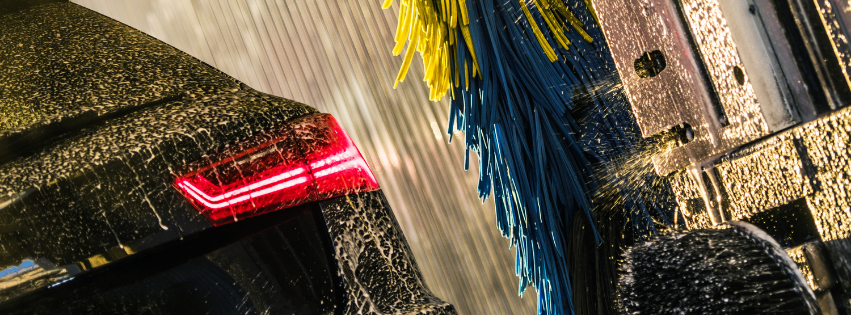Car Wash Equipment: The Backbone of a Profitable Auto Wash Business
Discover how choosing the right car wash equipment can boost efficiency, reduce costs, and deliver spotless customer satisfaction.

Running a car wash is more than just soap, water, and elbow grease. The right car wash equipment is the heart of your operation — the difference between a business that merely washes cars and one that delivers an efficient, eco-friendly, and profitable customer experience. Whether you’re starting from scratch or upgrading your setup, investing in high-quality equipment pays off in performance, savings, and reputation.
Why Equipment Quality Matters
Think of your car wash equipment as your business engine. It determines how many cars you can clean per hour, how consistent your results are, and how much you’ll spend on repairs and utilities. Top-tier equipment might cost more upfront, but it delivers faster ROI through durability and energy efficiency.
A reliable setup also means less downtime — no customer likes seeing a “Closed for Maintenance” sign. Consistent operation keeps your revenue flowing, your staff productive, and your reputation strong.
Types of Car Wash Equipment
1. Automatic Car Wash Systems
Automatic systems — whether touchless or soft-touch — are designed for speed and convenience. They include high-pressure pumps, foamers, and dryers that streamline cleaning without human labor. Touchless systems use powerful jets and detergents to remove grime, ideal for customers who prefer no brushes touching their paintwork.
Benefits:
- Handles more vehicles per hour
- Reduces labor costs
- Consistent wash quality
Example brands: PDQ, Istobal, and Washworld — known for durable systems with advanced automation features.
2. Self-Service Car Wash Equipment
This setup empowers customers to clean their vehicles using high-pressure sprayers, foaming brushes, and spot-free rinsing. It’s popular for its low overhead and steady passive income stream.
Benefits:
- Minimal staffing required
- Flexible for small spaces
- Attracts DIY car owners
Pair this model with a cashless payment system or mobile app for ease of use and improved monitoring.
3. Conveyor Tunnel Systems
For high-traffic car washes, tunnel systems are a game-changer. Conveyor belts guide cars through a series of synchronized cleaning stages — from pre-soak and scrubbing to rinsing and drying.
Benefits:
- High throughput (up to 120 cars/hour)
- Customizable add-ons (waxing, polishing, underbody wash)
- Enhanced customer experience with entertainment or lighting features
If you’re planning a large-scale setup, consult with experts for site layout and equipment configuration. Car Wash Consulting Services can help optimize your design for flow and profitability.
Essential Support Equipment
Beyond wash systems, a well-equipped facility includes:
- Water Reclamation Systems: Reduces water waste by recycling up to 80% of wash water. Learn how this saves money and supports sustainability in Water Reclamation Systems for Car Washes.
- Vacuum Systems: Centralized or standalone vacuums keep interiors spotless. Offer them as a free perk or paid add-on to increase your profit per vehicle.
- Air Compressors: Powering dryers, pneumatic tools, and pumps — choose one with stable pressure output and low noise levels.
- Chemical Delivery Systems: Automated chemical mixing ensures consistent detergent ratios, minimizing waste and human error.
Key Considerations When Choosing Equipment
- Volume and Space: Estimate daily wash capacity and available floor area. Oversized systems can choke small sites, while underpowered ones can’t keep up with demand.
- Water and Power Efficiency: Seek models designed for low resource consumption. Efficient systems not only reduce utility bills but also qualify for green certifications.
- Ease of Maintenance: Select equipment with modular components and accessible service points. This reduces technician costs and downtime.
- Warranty and Support: Partner with brands offering comprehensive warranties, spare part availability, and local service networks.
- Scalability: Opt for systems you can expand — add more vacuums, dryers, or bays as your business grows.
For a deeper dive into cost-benefit analysis, explore our article on Car Wash Installation and Setup Costs.
Maintenance: The Lifeline of Your Equipment
Even the best machines need regular care. Routine maintenance, like checking water filters, replacing worn brushes, and cleaning sensors, extends equipment life and prevents costly breakdowns.
Implement a preventive maintenance schedule to spot small issues before they turn into full-blown operational disasters. Use digital logs to track service history and performance data — tools like Pipedrive or Monday.com make this easy.
For practical steps, read our guide: How to Keep Your Car Wash Equipment in Top Shape.
Trends Shaping Car Wash Equipment in 2025
- Smart Automation: AI-enabled sensors optimize water pressure and detergent use.
- Eco-Friendly Systems: Manufacturers now produce machines compatible with biodegradable soaps and water recycling tech.
- Cashless & App-Based Payments: Integration with digital wallets and loyalty apps enhances convenience and repeat business.
- Data Analytics: Modern systems provide performance dashboards to monitor chemical use, uptime, and profit margins in real time.
These innovations are helping owners transition from “manual operators” to “data-driven entrepreneurs.”
Final Thoughts
Your car wash equipment isn’t just hardware — it’s the backbone of your customer experience and profit margin. The right investment translates to cleaner cars, happier customers, and a stronger bottom line. Don’t just buy what’s available; choose what aligns with your business goals, site capacity, and long-term growth strategy.
To start your equipment evaluation and site planning, connect with the experts at Car Wash Management. Their team can guide you through equipment selection, installation, and operations for a car wash that shines — in performance and profitability.
